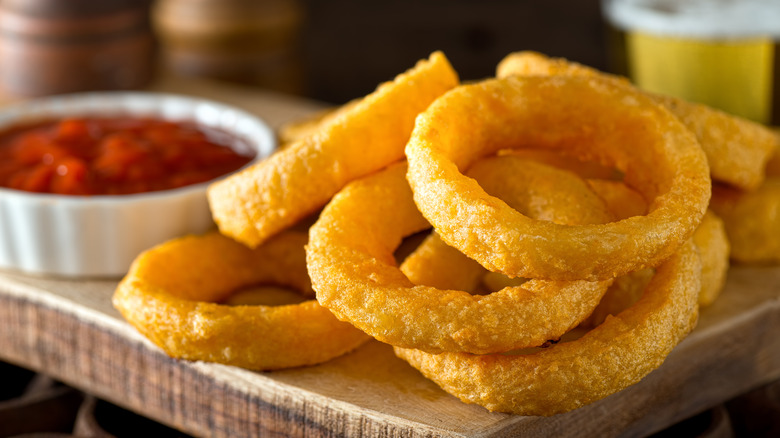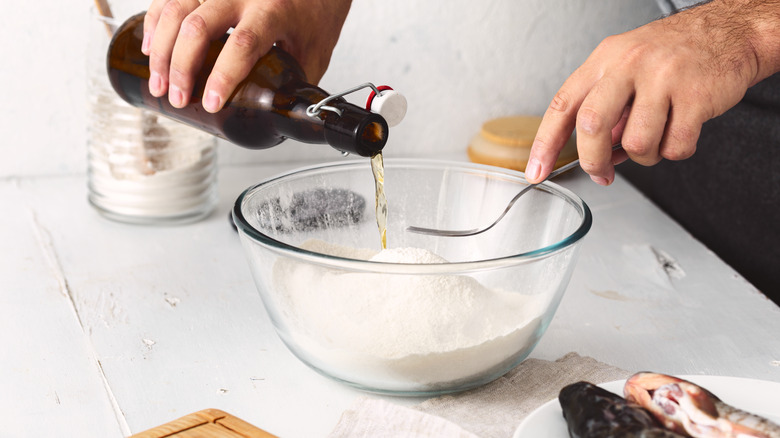Why Beer Batter Sometimes Isn't The Best Choice For Fried Foods
If you're a fan of pretty much any bar food, then there's probably a good chance that beer batter is in your near or immediate future. Beer batter is a thick batter typically made from seasoned flour, eggs, and, of course, beer. But, it's as much a foodstuff as a miracle of science. According to Scientific American, beer is packed with three key elements in creating a good frying batter: carbon dioxide, alcohol, and foaming agents. The carbon dioxide creates air bubbles in the batter, which is instrumental in achieving a crispy bite. Per America's Test Kitchen, beer's carbonation increases the batter's acidity, which creates a lousy environment for gluten to form. By discouraging gluten formation, beer keeps the batter from getting too tough. Since alcohol evaporates faster than water, beer batter has a brief cook time compared to other frying batters. That means you get your basket of fish and chips even quicker.
Truly bold foodies might dare to wonder what fried onion rings, chicken, or pickles would be without beer batter. Believe it or not, sometimes, the answer is "better." Here's why beer batter sometimes isn't the best choice for fried foods.
Beer batter runs the risk of sogginess
One major appeal of beer batter is its thickness. It can hold in food's moisture during frying, says The Spruce Eats, and it protects the structural integrity of fragile foods like fish. But, sometimes, it can take the moisture-lock thing too far. With that thickness comes beer batter's admitted downfall: It doesn't always crisp up. The oils in beer batter break down quickly, says Serious Eats, so if you don't use it immediately after making it, it gets soggy. Foods often need to be dredged in flour a second time after the beer batter bath to ensure crispiness. In the Reddit forum r/AskCulinary, one home cook says their beer-battered fish filets "looked a fantastic dark golden brown and were crispy when I took them out, but by the time we ate them ... it was a wet tube sock that the filet nearly slid out of."
Beer batter also runs the risk of blandness. Since it features a minimal lineup of ingredients, all the seasoning comes from any salt, pepper, paprika, or other spices you add to the flour so that it can air on the flavorless side. Even world-renowned chef Gordon Ramsay ran into this issue with the beer-battered cod at his NYC restaurant Gordon Ramsay Fish & Chips, reports Insider. In other words, if your homemade beer batter doesn't turn out, the problem probably isn't you: It's your batter.

